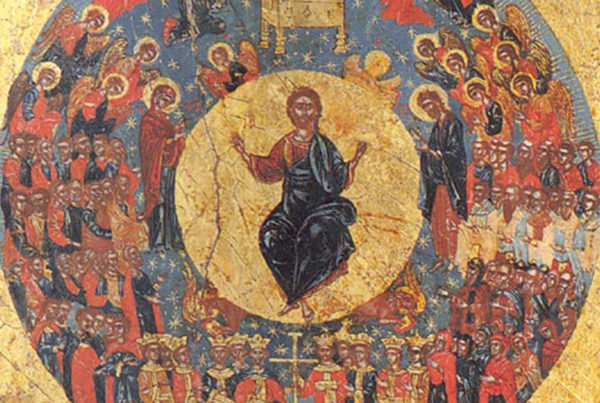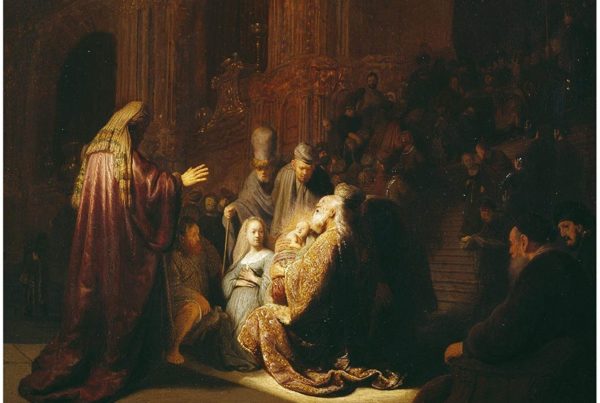Ash Wednesday. A day to have ashes smeared on your forehead, acknowledge and publicly confess what a miserable wretch you are, and sit quietly pondering the fact that one day, you are going to die.
Awesome.
I grew up in a tradition that greatly eschewed moments in the Christian calendar like Ash Wednesday. If Jesus is alive, if sin and death have already been defeated. If we have already been given to drink of the Spirit, why all the doom and gloom? Why on earth would we want to mope around like the Catholics? It just didn’t make sense. Shouldn’t the Christian life be a nonstop experience of joy, freedom, victory, and power?
What I did not know then that I know now, is that part of the power of Christianity lies in its steadfast refusal to cover up and deny the truth. While it is of course true that Jesus is alive, that sin and death have been defeated, and that we have already been given to drink of the Spirit, our own lives and life of the world around us still often reek of death. What shall we do with this reality?
One option that we have is simply to give in to it, to acquiesce to things as they are, to our lives as they are, and go on living. Many people do this. They become utterly pragmatic in their assessment of the situation, throw their hands up in the air and declare with confidence, “It all just is what it is.” This abandonment of hope is responsible for much grief, sadness, and loss of vitality in our culture (not to mention despairing self-gratification which often leads to addiction).
Another option is to deny the truth of our situation. Western culture is studied in the practice of denial, and as a consequence, our lives are incoherent, hypocritical, and often unwittingly destructive. We spend billions of dollars every year on music and media that simultaneously glorifies and degrades sex, and then wail and lament the reality of sex trafficking. We pollute our land, our food, and our bodies and then bemoan our many diseases (and try to create new and expensive pills to cure our broken bodies). We worship the plastic and superficial lives of our celebrities and then wonder aloud why our lives feel meaningless and without purpose.
Christian culture often fares no better on this front. Because we have an expectation that taking the “God pill” will cure whatever ails us, we are incapable of admitting that our lives are often sad, purposeless, and deeply warped. In the absence of having space for such an admission, the only possible result is duplicity, and it is no wonder that so many Christians feel forced to live “double lives.” That things like alcohol abuse and sex addictions are as rampant among the faithful as those outside the walls of the Church is proof positive that denial is a poor strategy for living.
But gladly, there is another option in front of us; an option that Christianity (at its best) in general and Ash Wednesday in particular makes available to us: we can name and grieve our situation. We don’t have to keep up the pretenses, we can abandon the facade, we can admit that the jig is up. The lives that we’ve built aren’t working, the practices we’ve embraced are killing us, there are profound gaps between what we say we believe and how we live, and it is destroying ourselves and the world around us. We no longer have to live a lie. We can lay it down, let it go, admit we were wrong and that we need help. And in a paradoxical way, we find that in the midst of that naming and grieving of our situation there is a reservoir of deep joy, for our coming into the light creates space for new possibilities to emerge.
When I was in eighth grade, my friends and I got “busted” (by our parents) for our involvement in some activities we shouldn’t have been involved in. In the months leading up to our “busting”, I vividly remember a quiet desperation building in my soul. I just wanted it to be done, to be out of it, to get a fresh start, to have it all come into the light. I just didn’t know how to get there. And I was terrified at what would happen if and when my parents found out. When one of my own friends admitted to his father what we had been doing, I experienced firsthand “what would happen.” And I was frankly surprised.
In the first place, my parents were visibly upset and disappointed in me. How could I do such a despicable thing? Hadn’t they raised me better than that? I knew that such disappointment was inevitable, and that’s not what scared me. What scared me was the “wrath.” What sort of punishment would I receive? When my dad looked at me and said, “We’re not going to punish you, but you need to take a hard look in the mirror and ask yourself the question, ‘Is this the kind of person I want to become?’ ” I was shocked. I had imagined everything but this sort of response.
That evening, after our little discussion, I went out to the driveway to shoot some baskets at our basketball hoop (it’s where I often went to think and process). I had expected wrath. What I got was mercy. And not just mercy, but challenge. And as I sat there pondering that, all of a sudden I felt strangely free. I felt full of hope and emboldened to live into a better future for myself. That moment was a turning point that set the stage for how my high school career would unfold: laser-focused, devoted to God, full of light.
That’s what Ash Wednesday is all about. It is a truth-telling moment. A moment to allow ourselves to name the distance in our lives between what we are and what we say we believe and grieve it. When we have the ashes smeared on our foreheads, we’re remembering before God that we are “dust and ashes”, made from the dirt and destined for dirt, yet promised glory if we’ll have the courage to admit our failure and cleave to the God of mercy.
And in reality, this is the heart and hope of Lent. Easter, yes… but before that – Golgotha. If we wish to enter into glory, we must pass through death. No one who shirks this call will taste the deep bliss available to us human beings. “If anyone would come after me, let him deny himself, take up his cross, and follow me. For whoever wants to save his life will lose it, but whoever loses his life for my sake will find it.”
Amen. Help us, Lord Jesus.
[If you’re in Denver, feel free to join the friends at Bloom Church for our Ash Wednesday service. 7:00pm. Childcare 0-4 years old.)



So well stated Andrew. How freeing to begin the journey with … freedom! So much baggage accompanies us as we travel, why not lighten the load on day one! What an ideal time and day to remember that, “in the deepest way, we must learn to depend on God.”
Amen!
Naming it! I love this. I name my depravity and my need for God. I’ve found it freeing to heap (symbolic) dust on my head, while putting aside the pressures to look like or be the “perfect Christian.” Maybe this is why I’ve come to love Lent. We’re allowed to recognize our depravity and our need more freely, it seems, during this season.
I absolutely loved this post. Your words spoke deaply to my soul and in a big way took the words out of my mouth and put into words what I’ve been thinking about as this day approached. I am depraved and my life depends on Jesus. Thank you!
This stuck with me today– I read it earlier and I keep thinking about “the distance in our lives between what we are and what we say we believe”. I shared on facebook and linked on my blog. Really resonated with me and I’m making it a focus for Lent. Thank you!
Reading your post made me realize how much you are missed. Keep blogging my friend, it blesses us richly. I hope all is well with you and yours. Grace and Peace.
Thanks Joel! And also with you… say hey to Candice for us!
Just wanted to stop by and say that I happened upon this post on Ash Wednesday and that it has really resonated with me. I’ve been chewing on it for several days and expect to continue. That Ash Wednesday and, indeed all of Lent, is about truth telling and refusing to deny the brokenness that is both around us and within us – this is quite a revelation to me and one I’m sure I will revisit. Thank you for sharing.
You are welcome. Grace to you on your journey…
I think part of Ash Wednesday and Lent is recognizing the depth of our sin and sitting in that discomfort for a minute. I love that your dad had you look in the mirror and think about who you wanted to become: that is realizing the depth of your sin. Our sin is not forgiven because it is small, although sometimes we act as if that is what we believe. Our sin is forgiven because Christ’s death covers it, and when we diminish our sin we diminish what Christ did. “If we want to enter into glory we must pass through death.” Amen. Thanks for sharing.